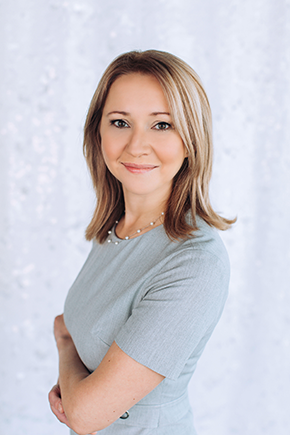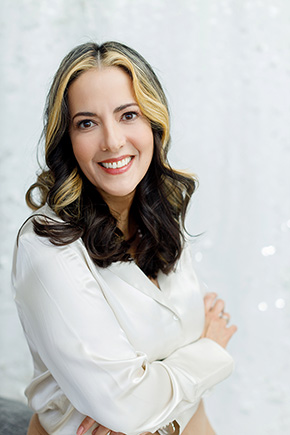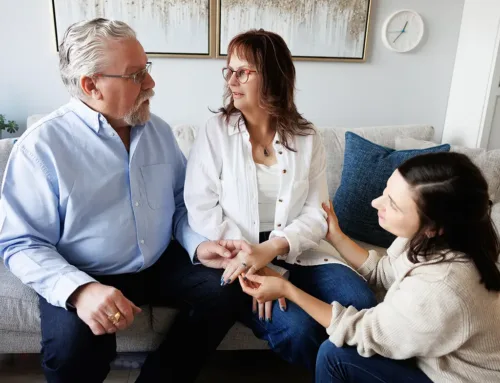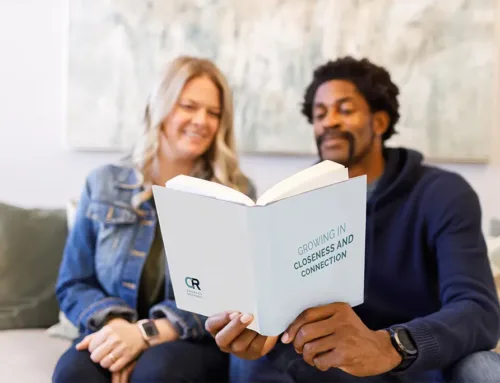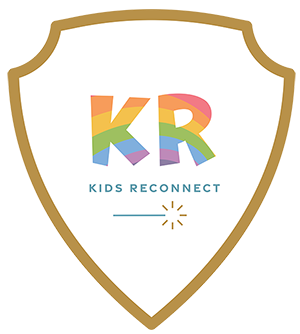Have you ever felt like you and your partner are stuck
in a never-ending loop of the same misunderstandings and arguments?
It’s easier to break these cycles once we can see them clearly.
In this blog post, our clinic’s Natalie Bergman points out three common negative cycles. Get back to a loving, connected relationship by spotting and stopping them in their tracks.
Meet the author
Natalie Bergman, DCP, RPsych
COUPLES THERAPIST
Meet the editor & copywriter
Ana Hoepfner, BEc
COMMUNICATIONS
Feeling stuck in the same fights over and over?
In Emotionally Focused Therapy (EFT), understanding and clarifying negative cycles of interaction is important in helping couples improve their relationships.
Odds are that you have been stuck in some repetitive (pointless and frustrating! ) negative patterns that neither of you likes to be in.
Here are three common negative cycles that couples therapists often see
1. One partner demands attention and reassurance while the other pulls away to avoid conflict.
Here is an example: “You never spend time with me!” leads to the other partner retreating further into work or hobbies. Then, one partner feels abandoned and unloved, while the other feels overwhelmed and inadequate.
2. Both partners are confrontational, often due to underlying insecurities.
For example, “You always ignore me!” vs. “You never appreciate anything I do!” This cycle leads to continuous conflict and a breakdown of emotional safety and trust in the relationship.
3. Both partners avoid engaging emotionally, leading to a lack of intimacy.
Interactions are limited to daily logistics, such as “Did you pay the bills?” “Yes.” Then, both partners feel loneliness and emotional isolation.
Why do these negative cycles happen?
If neither of us likes to fight, why do these negative patterns happen (over and over again!) in our relationship?
They often stem from attachment styles developed in childhood. Understanding your and your partner’s attachment style can provide insight into why these patterns exist and how to change them. Identifying these cycles through greater relational self-awareness and then breaking them is key to a happy relationship. Couples who handle conflicts with empathy and understanding (for themselves and for each other) have stronger, more satisfying connections. It’s about meeting each other’s emotional needs and building —or rebuilding— trust.
The super good news?
The newfound awareness and insights you each gain will help you not just as a couple, but in all your relationships.
References
Brubacher, L., & Johnson, S. M. (2018). Clarifying the Negative Cycle in Emotionally Focused Therapy. University of North Carolina, Greensboro, NC, USA, & The University of Ottawa, International Centre for Excellence in Emotionally Focused Therapy, Ottawa, ON, Canada.

